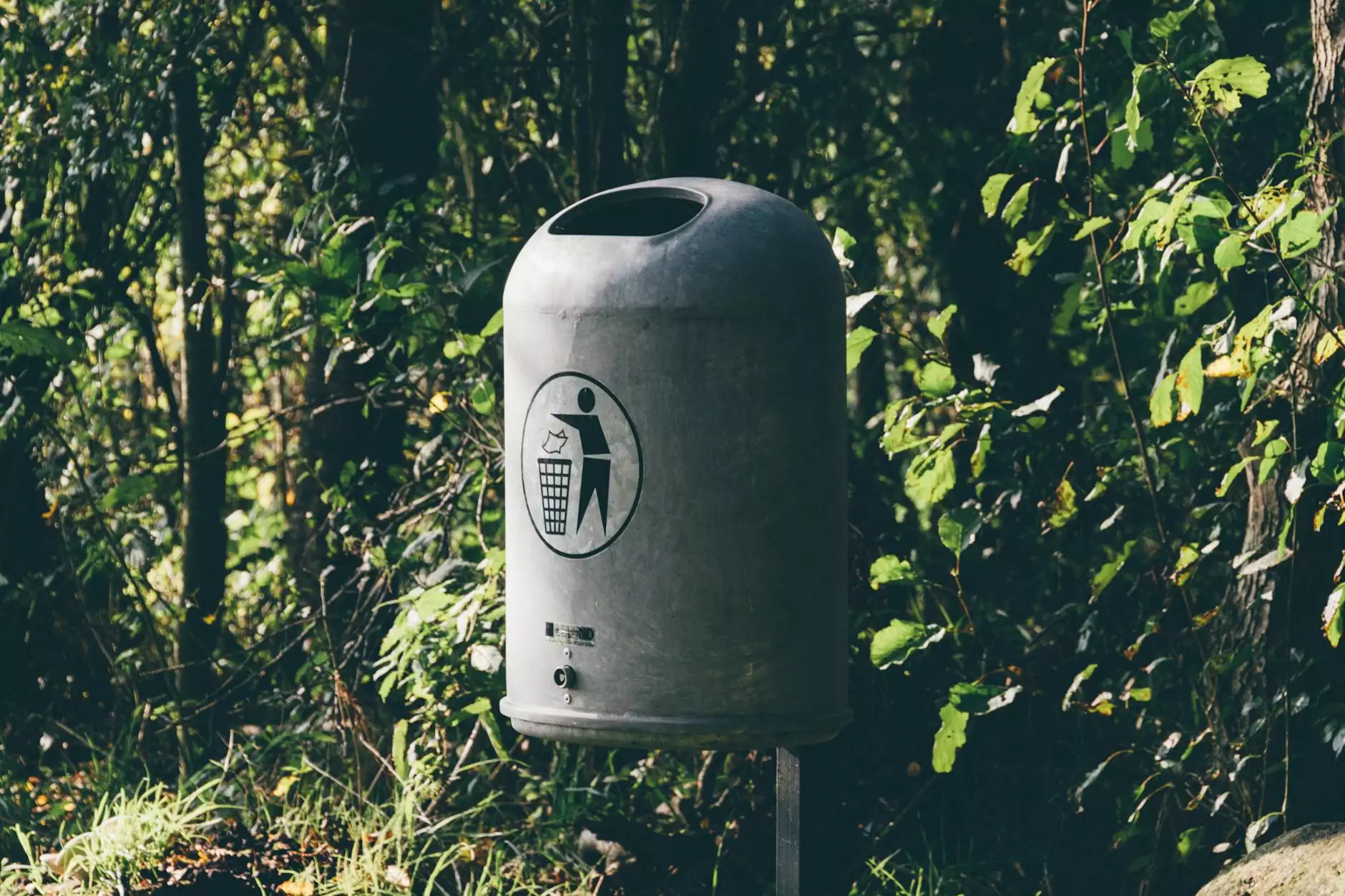Optimizing Waste Management for Cooking Oil: A Comprehensive Guide

The proper waste management of cooking oil is an often-overlooked aspect of our everyday lives, yet it plays a critical role in both environmental protection and the circular economy. As a leading sunflower oil supplier, we at Refine Sunflower Oil understand the significance of sustainable practices surrounding cooking oil usage and disposal. This article delves into the importance of responsible waste management of cooking oil, its environmental impact, and effective strategies for businesses and consumers alike.
Understanding the Environmental Impact of Cooking Oil Disposal
Cooking oil, when improperly disposed of, can have devastating effects on our environment. Here are some of the major consequences of neglecting waste management for cooking oil:
- Water Contamination: Pouring cooking oil down the drain can lead to blockages in sewage systems and waterways. This can kill aquatic life and disrupt ecosystems.
- Soil Degradation: Oil spills on land can seep into the soil, leading to decreased soil quality and harming plants and organisms.
- Air Pollution: When burnt incorrectly, cooking oil releases harmful fumes and toxins into the atmosphere, contributing to air pollution.
The Importance of Proper Waste Management for Cooking Oil
Implementing effective waste management strategies for cooking oil is essential for several reasons:
1. Promoting Environmental Health
Proper disposal of cooking oil reduces the risk of environmental pollution. By minimizing the contamination of water bodies and soil, we protect wildlife and promote biodiversity.
2. Supporting the Circular Economy
Recycling cooking oil can transform waste into valuable resources. Used cooking oil can be converted into biodiesel, a renewable fuel that lowers greenhouse gas emissions.
3. Regulatory Compliance
Many regions have strict regulations regarding the disposal of hazardous materials, including cooking oil. Following waste management standards helps businesses avoid fines and legal issues.
Best Practices for Cooking Oil Disposal
1. Recycling and Reusing
Finding ways to recycle or reuse cooking oil is one of the most effective strategies in waste management:
- Donate to Local Farms: Many farms accept used cooking oil as it can serve as animal feed or a supplement.
- Convert to Biodiesel: Certain companies specialize in collecting used cooking oil to convert it into biodiesel fuel.
- Repurpose at Home: Used cooking oil can be repurposed for non-cooking uses like soap making or lubricants.
2. Composting
When dealing with small amounts of oil, composting can be a viable option. Mixing small quantities of oil with organic waste can enhance the composting process, provided you do so sparingly.
3. Proper Disposal Techniques
If recycling is not an option, follow these steps for proper disposal:
- Cool the Oil: Allow the cooking oil to cool down to room temperature.
- Containment: Pour the cooled oil into a sealed container like a plastic bottle or jar.
- Label the Container: Clearly label the container as “Used Cooking Oil” for disposal purposes.
- Find Local Disposal Sites: Research local waste management facilities or collection points to dispose of your waste cooking oil responsibly.
How Businesses Can Incorporate Sustainable Practices
For businesses, especially those in the food industry, integrating sustainable waste management practices for cooking oil is not just beneficial; it's a necessity.
1. Collaborating with Waste Management Services
Partnering with a dedicated waste management company ensures regular collection and proper disposal of used cooking oil. Companies like Refine Sunflower Oil provide comprehensive oil recycling and disposal solutions.
2. Educating Staff and Consumers
Education can foster a culture of sustainability. Training employees on proper waste disposal techniques and informing customers about how to dispose of used oil responsibly can create a more environmentally conscious community.
3. Implementing Oil Management Systems
Investing in technology that tracks oil usage and demonstrates a commitment to sustainability can improve efficiency and reduce waste.
The Role of Sunflower Oil Suppliers in Waste Management
As a prominent sunflower oil supplier, we believe in not only selling products but also being part of a larger environmental narrative. Here are several ways we contribute:
1. Providing Guidance on Oil Usage
We offer resources and consultations on how to effectively use, store, and manage sunflower oil to minimize waste.
2. Supporting Recycling Initiatives
Our company collaborates with local entities to promote recycling initiatives, providing easy access for customers to dispose of their used cooking oil responsibly.
3. Innovating Sustainable Packaging
We are committed to using sustainable packaging solutions, reducing the overall environmental footprint of our products.
Conclusion: A Call to Action for Responsible Waste Management
In conclusion, the waste management of cooking oil is an essential practice that contributes to environmental sustainability and resource conservation. By adopting responsible disposal methods and collaborating with suppliers and waste management services, both individuals and businesses can make a significant difference. As a leading provider, we at Refine Sunflower Oil are dedicated to fostering sustainable practices and ensuring that our operations benefit not just our customers, but the planet as a whole. Together, we can turn waste into opportunity, creating a healthier future for everyone.
waste management cooking oil







